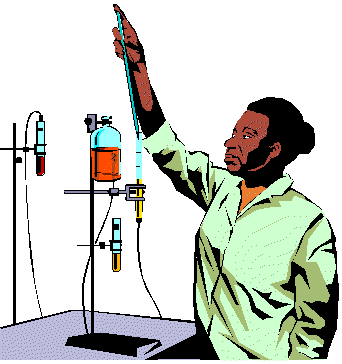|
|||||||||||||||
|
How Jane Won ® When women of my generation realized we were oppressed, we vowed to change that for ourselves, our daughters, and for the generations of women that would follow. We believed that women deserved to earn our own identities and our own successes, not just marry our husbands’ successes. In our See Jane Win* and How Jane Won** studies, success was defined as not just a title or a paycheck, but simply put, fulfillment—to be happy in our careers, our homes, and our relationships. More than 1000 successful women participated in our See Jane Win research by completing a 24-page questionnaire. More than 150 women took time from their busy and interesting lives to tell us their stories so they could inspire and encourage girls and women of this and future generations. Their stories were spellbinding, exciting, and ever so wise. My daughter, Sara, and I would often call each other in exhilaration after each interview. We felt so fortunate to talk and listen to these wise women, and we were so anxious to share every nugget of their wisdom with women the world over. The research findings of See Jane Win, the advice that follows, and words of wisdom from some of the successful women's stories follow to inspire you, your daughters, sisters, mothers, dads, and teachers, too, to help girls and women to learn to fulfill themselves. GIRLS GROW THROUGH HEALTHY COMPETITION A major milestone for me was winning first place in extemporaneous speaking at a tournament at BallStateUniversity. I had never competed before. I didn’t know the feeling of being number one. I really liked it. My dad taught me to be competitive. He gave me a little tin shovel and told me to shovel dirt off one little square piece of the sidewalk. He bet me he could do the whole sidewalk in the same time, and he beat me. I threw my shovel down and had a fit because I’d lost that competition. He never just let me win, but he provided challenges. Many of the successful women from our study listed "winning in competition" as an important positive experience for them. They frequently described the exhilaration and motivation they derived from winning. But, successful women didn’t always win; they had to cope with personal and professional losses and the emotional fallout; they learned from those losses and regrouped to persevere. DARE TO COMPETE Competition and collaboration are not opposites. Selecting the appropriate occasions for cooperation and competition helps you learn to function successfully in a competitive society. SUCCESSFUL WOMEN ARE MUCH MORE THAN THEIR APPEARANCE I grew up on a remote cattle ranch in the Southwest, where I learned to be independent. We had to do everything ourselves. If something was broken...we had to fix it. If we wanted some-thing built, we had to build it. I was expected to do many things and do them well without complaint. Other people depended on me doing a good job. I loved school. I loved learning, enjoyed taking tests, doing things for a grade, and answering questions in class. As a student, I had to be the best. If I got less than an A, I would go to the teacher and say, “Please, I just can’t have this B.” I would continue until they would give me some extra projects. I was always willing to work for that A. I grew up in a family where I didn’t expect to get anything for nothing. We asked the successful women in our survey to choose from a long list of characteristics those words that best described themselves in childhood. The words they selected most frequently were “smart,” “hardworking,” and “independent.” Also very popular were “adultlike,” “happy,” “mature,” “creative,” “tomboy,” “bookworm,” “brainy,” and “good little girl.” They frequently chose “sensitive,” “kind,” “shy,” “emotional,” “perfectionistic,” and “self-critical.” They rarely selected “troublemaker,” “rebellious,” and “fashion leader.” These women tended to develop many interests. IT’S COOL TO BE SMART AND WORK HARD If you're not a hard worker you'll probably not accomplish much, but it's never too late to become involved. Feeling smart doesn't mean you have to be the smartest. Finding your strengths and interests will help you feel good about yourself. It’s quite difficult to be independent from your peers in school because there are so many pressures to conform. Being independent doesn’t mean you have to live a life of isolation, only that you should select friends that fit with your values. Some of the other descriptors will help you realize that you can be successful even if you view yourself as sensitive, shy, too emotional, perfectionistic, or self-critical. If others view you as a trouble-maker, you may indeed require help from a psychologist or psychiatrist. If you’re open to out-side assistance, it is more likely to be helpful to you. ALL-GIRL INDEPENDENT OR PAROCHIAL SCHOOLS CAN BE GOOD CHOICES I went to a girls’ boarding school between ages thirteen and eighteen. The girls’ school taught me not to be afraid to compete. I would have been one of those girls who was so interested in boys, I would have put my personal interests on the shelf and not done anything that guys didn’t like. Girls’ schools made a positive difference in my life. My seventh-grade English teacher was Mrs. Hardy. Her expectations were very high. We used proper English, and we knew that we had to accomplish high goals. She introduced me to poetry, to speaking grammatically, and to striving to do more. I felt so accomplished, empowered, and strong coming out of her class. A rough coach makes you feel like you are capable of everything; to this day, I remember her. Although most of the successful women in our study attended public schools (79 percent), twice as many attended parochial or independent schools as did children in the overall population. Attendance at all-girl middle schools, high schools, and colleges was considerably higher too. Whether these women attended public, parochial, or independent schools, they often described specific teachers as having great positive, life-changing, influences on them. CHOOSE THE SCHOOL THAT FITS YOU Family economics and your own personality should be important factors to consider in making decisions about schools and colleges. If you are particularly shy or quiet, an all-female environment may encourage you to speak out. It may also provide you with more opportunity to accept leadership. Be honest with yourself about the effect of boys or men in your environment. They may or may not be a distraction and only you can make that determination. You can always search for good teachers as mentors in whatever school you attend. You’ll have to do your share. Teachers are more likely to direct their energies toward students who are engaged and interested. PEERS MATTER, FOR BETTER OR WORSE I was the class president in seventh grade and student body president in ninth grade. Despite all those honors, I was most insecure in junior high. I was the oldest girl and very small, and both my sisters had started their periods before I did. I thought I was ugly and felt like a creep. I appeared to be successful, but in reality I suffered in silence. Fortunately, in ninth grade I met my friends for life. We called ourselves the Swift Six, and they did wonders for my self-confidence. Girl Scouts was the center of my social existence. I was a Girl Scout from Brownies all the way to Senior Scouts and was proud of my Girl Scout badges. My framed sash with badges down the front and up the back still hangs on the wall. Earning badges helped me set goals, understand the steps, accomplish them, and be rewarded. Girl Scouts also taught me teamwork, particularly from camping and being buddies whenever we went off in the woods. In my work today, I take great pride in building a strong team of women, and that came directly from my Girl Scout activities. I didn’t fit in socially in high school and wasn’t popular. I never dated anyone and never went to a prom in my entire life. I had a close group of friends who were very interested in social and environmental issues, old movies, and more into the intellectual side of things. The successful women we surveyed were not always comfortable socializing with peers. Although approximately 25 percent were more social than typical, 40 percent assessed themselves as less social than typical, and 15 percent actually recall feeling isolated during elementary, middle, or high school. Most of the women in our survey tended to befriend like-minded peers who valued learning and achievement. CHOOSE FRIENDS THAT SHARE THE VALUES THAT MATTER MOST TO YOU Being social is neither bad nor good as long as your social life doesn't interfere with your learning during your crucial school years. If you select friends who value learning, you're likely to support each other in the process and still find time for fun. Developing extracurricular interests like Girl Scouts, music, sports, government, debate, drama, science, and math teams all combine learning and fun. Religious groups or special interest groups in high school and college often provide comfortable neighborhoods for friends, discussion, support, and leadership. If you’re going through some lonely times, at least you know you're not alone. Don’t be too hard on yourself. Hopefully family members can be supportive during this time; if not, you’ll need to be strong and independent. If you can find interests to become involved in, with time you will surely find friends who share those interests. TRAVEL HAS A BROAD INFLUENCE When I was in second grade, my dad came home and announced, “We’re all moving to Africa,” and that became an extraordinary adventure. My fascination with international politics began when we moved to French Morocco. We traveled as a family to places like FPs, MeknPs, and Marakech, and we soaked up the local culture. Travel was selected second most frequently after “winning in competi-tion” as a positive experience by our successful women. They often de-scribed travel with their families as adventurous or providing family bonding. Independent travel or travel with school groups during high school and college had dramatic effects on their independence and broadened their perspectives. GET OUT AND SEE THE WORLD Enjoy travel with your family if you have the opportunity. In order for you to benefit by your experiences, you’ll need to be open to them. Your travel is likely to stand out as unique and help you grow as a creative person. Try to encourage your school to organize a travel group to better understand a culture related to a foreign language, art, or science you’re studying. Consider spending a semester or sum-mer abroad or in a different area of this country. SUCCESSFUL WOMEN HAD SUPPORTIVE PARENTS My parents made the biggest difference in my life. They placed no gender barriers before me. My father promoted my mother, and she promoted him. They were both involved in politics in New Jersey. I grew up thinking women can do anything. My father had his doctorate in pharmacy. He was on the State Board of Pharmacy, President of the National Board of Pharmacy, and very ambitious. He was always on the go, and still is. I realize I was just like my father. I did not let anything impede my path. He is probably the reason I can never focus on just one thing. We are both happier that way. Most of the successful women had good relationships with their parents. When asked to rate their relationships with their parents during the teen years, the women most often described them as good or excellent; a small percentage characterized them as fair or poor. Approximately half of the women identified with their mothers; one quarter with their fathers; and the other quarter with teachers, other relatives, or friends. The women also mentioned multiple other role models they looked up to while traveling their paths to success, including some from books and biographies. LET YOUR PARENTS BE A RESOURCE Although adolescence and young adulthood is surely the time to establish yourself as more independent, don't rule out parents’ recommendations that are based on their experiences in the world. Many of our successful women did turn to their parents for advice on careers, education, family, and relationships even during their adult years. Your family members may become your lifelong friends. Good role models abound, and you’ll need to search out those from whom you can learn. Many women un-derstand the important role of mentors and may be will-ing to give of their time if you ask for their guidance. BIRTH ORDER MAY NOT MATTER, BUT SIBLINGS DO Our parents had high expectations for all five of us. They were very supportive of our interests, attending any events in which we participated, whether it was a wresting match or high school band concert. We all learned to cheer for each other. All the career groups in our survey had women of all the possible birth orders; thus we can’t assume that birth order is a limitation for any career. Being firstborn proved an advantage for almost all careers other than mental health, nursing, and homemaking. There were more youngest children in mental health, an equal percentage of oldest and middle children in allied health, and more middle children among the homemakers. Many women described rivalry with a sister or brother who was highly talented in one area as the reason they stayed away from that subject or interest. They felt that area “belonged” to the sibling and believed they wouldn’t be able to distinguish them-selves. Competition between siblings can set very different directions for children in the same family. DON’T LET YOUR SIBLINGS HOLD YOU BACK Don't let your birth order prevent you from taking the risk of leadership. Leadership may not feel as comfortable to you if you are middle or youngest child, but do make deliberate attempts to take charge of organizations so you can learn to lead. If you’re oldest in the family, don't always insist on control. Letting others take the lead from time to time may free up some creative energy and give you the freedom to make occasional mistakes. A balance of control and creativity are important for most careers. When it comes to exploring your own talents, don't avoid areas just because a talented family member seems to have claimed the spot. You can have less talent than a brother or sister and still be very capable compared to the rest of the world. If you do feel competitive with your siblings, you don't have to disguise your feelings. It’s better to talk them through and even learn to praise and admire your sibling. Families thrive when all members become lifelong cheerleaders for one another. OPPORTUNITIES SPRING FROM OBSTACLES The most important thing that anybody can bring to leadership is a positive attitude. If you’re forward-thinking and have a positive attitude, you see barriers as challenges, not as reasons to give up. I received a C in my physical chemistry class. I had done well on the quizzes and exams. I was the only black person in the class. I had sat in front of the professor four days a week in the same place, yet on my grade sheet, he’d indicated I hadn’t come to class. I brought in my exams, assignments, and quizzes and showed him my average. He refused to change my grade. I knew I was getting a C for “Colored,” and I at least wanted a B for “Black.” Shortly after this incident, I went up to the stacks of the library and cried. I felt like dropping out of school. As I sat, a book fell out of the stacks and hit me on the top of the head. I picked it up; it was Up from Slavery, Booker T. Washington’s autobiogra-phy. I read the book again, and got to the point where Booker T. walked from Richmond to Hampton so he could learn to read. I started thinking, Life is hard and fraught with all kinds of opportunities to feel discouraged. One of my kids, who has a small role in the school play, said, “But you don’t know what it’s like to try to achieve something and then fail.” I was stunned that he thought I didn’t know that, that I didn’t approach my work every day fearfully. I’ve had tons of experiences with failure, but I try hard not to let them count. It’s like climbing a mountain. Sometimes all that’s available to you is to hold on to the hooks. You can’t go back down, but you have enough hooks to relax, and you can just put your face against the mountain and hold on until you have the strength to proceed. There have been plenty of times in my life when that’s all I’ve been able to do until I gather enough courage to take the next step. The successful women in our survey overcame many obstacles. They struggled with poverty, health problems, social problems, learning difficulties, or racial, religious, or economic prejudice. Many hit walls at various times in their lives when they needed to change directions or take time out. Some were plagued with depression and anxiety, and many lost confidence in their abilities from time to time. They usually responded to those barriers by persevering through them or by changing direction in their personal lives or careers. PREPARE TO BE CHALLENGED AND GET SUPPORT TO DEFEAT OBSTACLES Your pathway to success is likely to be indirect. At some point, you’ll face lessons that will seem impossible to learn, challenges that will feel insurmountable, closed doors that you will be unable to open. Determining whether you should persevere, get help, or change directions will be the test of your resilience. Try to get siblings, other family members, or friends to support you, or seek out professional help to guide you. You may have to change your goals, and you may even have to come to terms with real limitations in your abilities, but determination and effort can help you achieve much more than you first believed. SUCCESSFUL WOMEN HAVE A PASSION FOR THEIR WORK My I.Q. was 156, I graduated as valedictorian of my high school class and with honors in college, but I never reached my original goal of obtaining a physics Ph.D. Laboratories were too silent for me. I love to talk and have always thoroughly enjoyed people. Teaching girls to enjoy science is challenging and fun, and combines my love of science with my love of kids. I always loved music. I’d get chills and tears in my eyes—even when I was three or four years old. I had visceral reactions to music. These images have never left me. When I wake up in the morning, I can’t believe this is my life. I feel so lucky. What I love to do the most has become my profession. I believe one person can make a difference, and public service gives me the opportunity to give back something to this country that has given my family so much. I’m extraordinarily patriotic because I know what this country has done for my family, and I know we are just one of millions of people that would agree. “Challenge,” “contribution,” and “creativity” were the three words most frequently used to describe why our successful women chose their careers. Most indicated a passion about what they were doing and truly loved their work. There were women in all careers who voiced some dissatisfactions. Although some women were motivated to pursue their career from childhood, most identified their career direction in high school or college. BALANCE PASSION WITH REASON Consider the values you want to derive from your career. Be realistic in balancing your love of the work with availability of jobs, financial remuneration, time commitment, and its fit with your family and relationship goals. Don't feel committed to one career direction too early. College and life will give you opportunities for exploration and change. Don't be too quick to leave something you really love. There is wisdom in passionately loving your work, but despite your passion, you may not be able to achieve success, because some careers are simply too competitive. You may have to discover a passion for a new career and cope with leaving your first passion to others. BALANCING WORK AND FAMILY LIFE IS AN ONGOING CHALLENGE I have fulfilled my dreams and more. Who thought that a young girl from the South Side of Chicago with no family in the media business and very little exposure to New York City could come here on her own and get started and love it, and become president of a large division of a corporation? I get up in the morning and am excited about what I’m going to do that day. I have a wonderful marriage, two great kids, and a very interesting career. I feel like I have it all. Our successful women struggled and sacrificed to balance the roles of mother, wife, and professional. They sometimes experienced fertility problems caused by delayed childbearing. Some women redirected their careers or took time off to spend more time with family. As a result, they sometimes felt penalized in their careers. Women in some careers commented on “glass ceilings” and “sticky floors.” There were times when they sensed that being a woman offered either a distinct advantage or clear disadvantage, but only rarely could they be certain that opportunities or the lack thereof was gender-based. EXPECT THE BALANCING ACT TO BE A STRUGGLE You may have many choices about the timing of your career and whether or not you want to combine your career with marriage or family life. You can expect to struggle psychologically with those issues, and a race against the calendar for family planning is not unusual. You may choose not to marry; you may choose to marry but not have children. If you should decide to marry and have a family, expect to pioneer in devising ways to balance career and family life. Balance is a dynamic process. It means that sometimes things may get off-center in one direction or another. There’s not one perfect, ideal way to perform life’s balancing act.
|
||||||||||||||
© 2008 by Sylvia B. Rimm. All rights
reserved. |
|||||||||||||||






